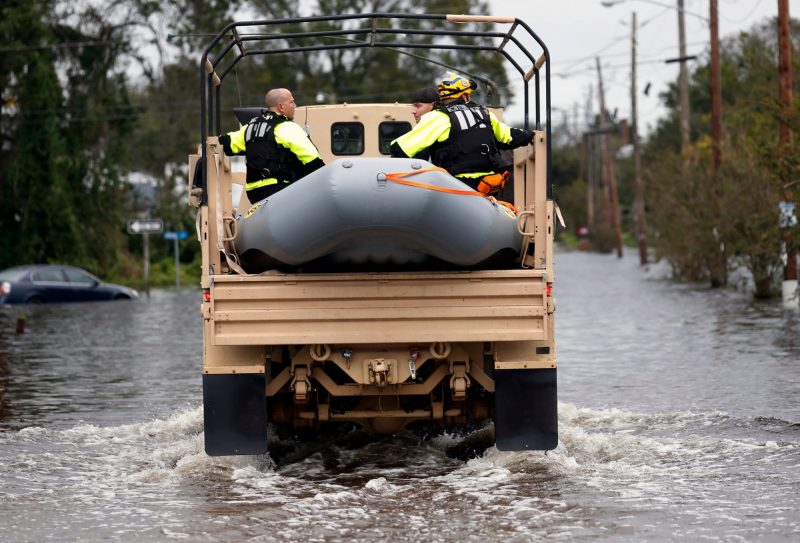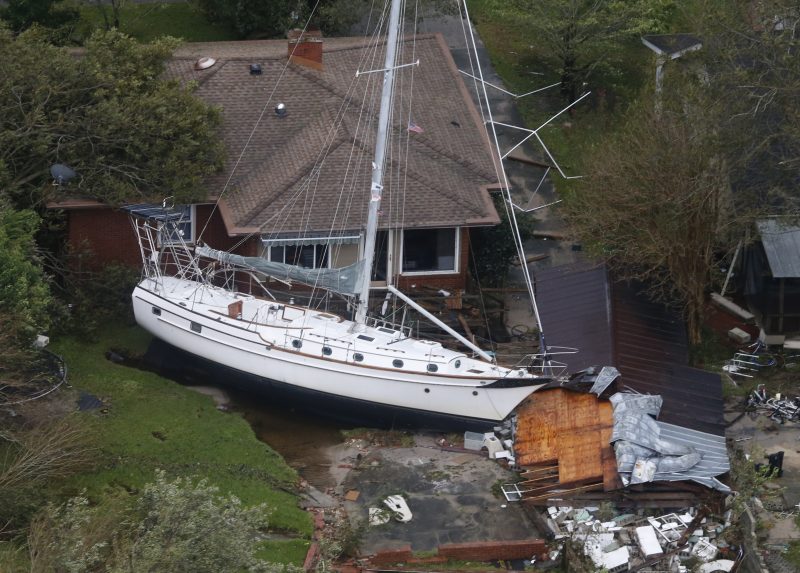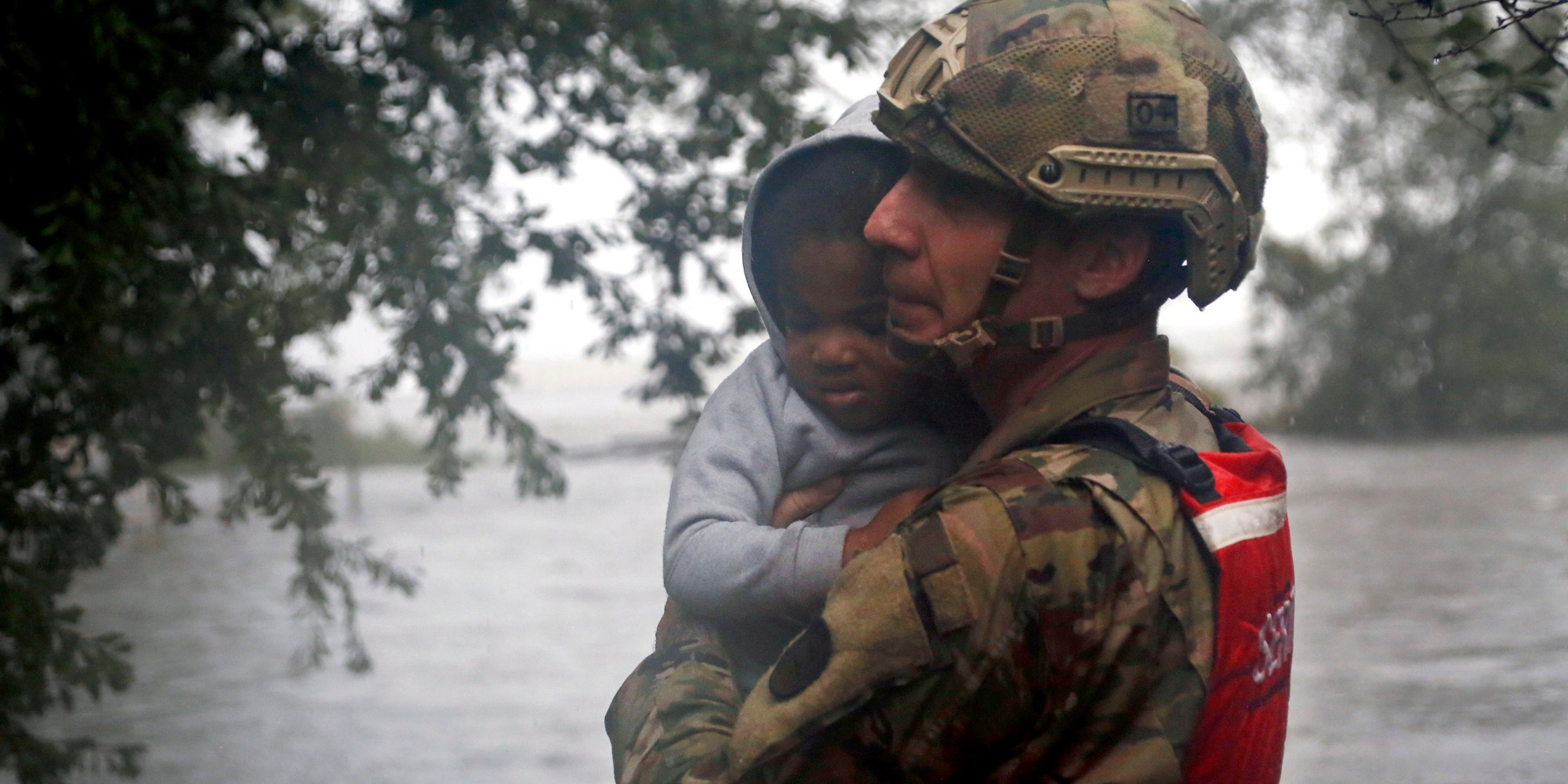- Residents were rescued from the coastal town of New Bern, North Carolina after massive flooding and damage from Hurricane Florence stranded hundreds.
- NBC News reported 455 people were rescued by the operation.
- Officials said operations were functional because the storm had weakened, but warned rising flood waters meant the threat isn’t over.
Rescuers had to rush to rescue residents from the coastal town of New Bern, North Carolina after Hurricane Florence caused devastating flooding that trapped people in their homes.
The county that contains New Bern issued a mandatory evacuation Tuesday, and as the storm worsened, the city tweeted to urge remaining residents to shelter in place.
“Currently ~150 awaiting rescue in New Bern,” the city’s Twitter page said late Thursday. “We have 2 out-of-state FEMA teams here for swift water rescue. More are on the way to help us. WE ARE COMING TO GET YOU. You may need to move up to the second story, or to your attic, but WE ARE COMING TO GET YOU.”

New Bern is approximately 100 miles from where the storm made landfall Friday morning. By Friday night, the city had received hundreds of calls from trapped residents and was moving on to clean-up operations by Saturday afternoon, city spokeswoman Colleen Roberts told NBC News.
New Bern Mayor Dana Outlaw said on NBC's Meet the Press Sunday morning there were 1,200 residents in shelters, and the city was prioritizing restoring power and keeping people off the streets to minimize further damage.
Though all rescue efforts were completed, Outlaw said officials were still "very concerned" about threats from damaged trees and homes, as the creeks around New Bern continued to rise.
Officials have warned that the storm's low wind speeds shouldn't be interpreted as a weakened threat, as rising flood waters are the biggest danger.

North Carolina Governor Roy Cooper warned Saturday that the storm was more dangerous now that it was on land.
"The rainfall is epic and will continue to be," Cooper said. "We just don't want people to think this is over, because it's not. ... Floodwaters are rising, and if you aren't watching for them, you are risking your life."
Coast Guard and North Carolina Emergency Management officials were on hand over the weekend across coastal communities in the Carolinas to get residents to higher ground, where the storm has already left a reported 14 people dead.
The storm is forecast to dump about 18 trillion gallons of rain over North Carolina, South Carolina, Virginia, Georgia, Tennessee, Kentucky, and Maryland, and parts of North Carolina are still set to receive 5 to 10 more inches of rain.

